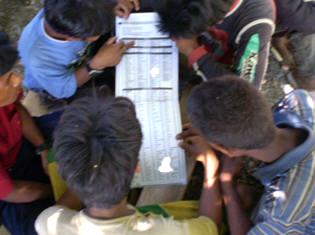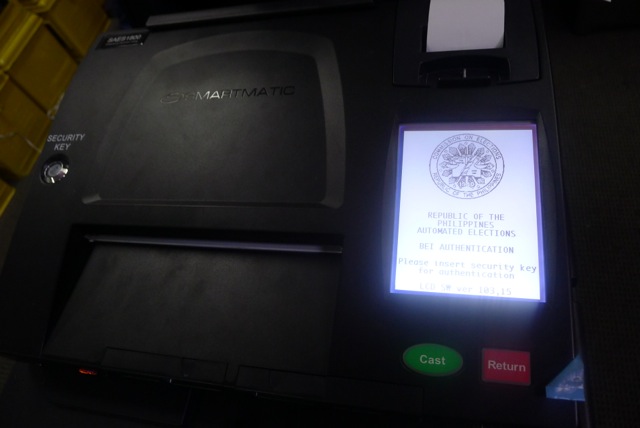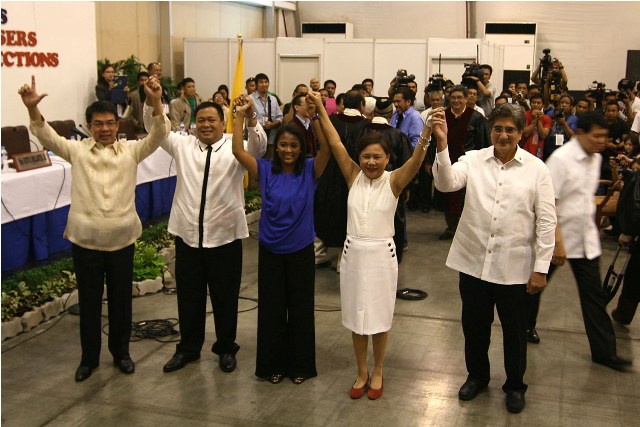
By MIKHAIL FRANZ FLORES
FIRST, the detainees. Then, people with disabilities. Now, indigenous peoples.
The Commission on Elections is getting indigenous peoples (IPs) who are qualified voters to register and vote in next year’s midterm elections. The continuing general voter registration will end on Oct. 31.
Comelec liasion officer Tony Villasor said the poll body is planning to hold special IP registrations from June to August in selected areas in Luzon such as Tarlac, Zambales and Mindoro, and later in General Santos City and the Davao areas in Mindanao and in Palawan.
IPs account for roughly 12 percent of the country’s 100 million population and are spread over 110 ethnic groups around the country. But government has no data on how many are of voting age.
“We have decided to help them (IPs) because if empowered, they can be a voice to reckon with in the Philippines,” said Elections Commissioner Rene Sarmiento, the Comelec’s focal person in making the 2013 elections IP-inclusive.
Comelec is part of the Inter-agency and Nongovernmental Organization Network on Empowering Indigenous Peoples, a partnership of other government institutions, NGOs and peoples organizations created in January to help IPs exercise their right of suffrage.
The network also consists of the National Commission on Indigenous Peoples (NCIP), Ateneo School of Government, Institute for Political and Electoral Reforms (IPER), Katribu party-list, Legal Network for Truthful Elections (LENTE), Parish Pastoral Council for Responsible Voting (PPCRV), Lawyers League for Liberty (Libertas), Catholic Bishops’ Conference of the Philippines-Episcopal Commission on Indigenous Peoples and the Consultative Group on Indigenous Peoples.
In 2010, the Comelec provided a mechanism that enabled detainees to register and vote. It held a special registration for persons with disabilities (PWDs) in July last week. Another round of special registration for PWDs has been ongoing since March. Sarmiento is also the focal person for these sectors.
The lack of legal documents such as birth certificates and government-issued identification cards has been identified as among the biggest hindrances to getting the IPs to register as voters. Other problems include the distance to polling precincts, lack of basic literacy, a different political system and lack of voter education.
“If you ask them, they would say I was born when the moon was full. If you ask them what your name is, they would say my name is Medicol because that is what they hear,” Sarmiento said.
In the Aeta communities in Zambales, some are simply named Jefferson or Abraham because of the long influence of U.S.naval base in the area, Sarmiento adds.
In Resolution 9427 issued on May 17, however, IPs will be allowed to register even without identification cards or birth certificates.
According to the resolution, an IP may be identified under oath before the election officer using an affidavit of identification by any registered voter of the precinct or any of his or her relatives up to the fourth degree.
Comelec is also allowing allowed a certificate of confirmation issued by the NCIP as a valid form of identification.
IPs who are already registered can also update their registration records and indicate the community to which they belong.
The inter-agency network is also working out a voter education program for first-time IP voters based on a framework they can relate with.
Villasor said IP voters should be educated based on issues close to their heart such as ancestral domain and self-determination. He said IPs should learn “that they have a right and this election has an effect in (their) lives.”
Government and civil society acknowledge that IP voters are vulnerable to harassment and exploitation by politicians.
Among the documented cases of exploitation are those of the Mangyans in Oriental Mindoro.
A group of lawyers and election officers who visited a Mangyan Reservation Area in Oriental Mindoro, home to around seven Mangyan tribes, has confirmed the “hamletting” cases in previous elections. The Mangyansvoters were rounded up and confined in a compound to coerce them to vote in favor of certain candidates.
Mangyan tribes include the Alangan, Iraya, Tadyawan, Tau-buwig, Bangun, Buhid and the Hanunuo.


